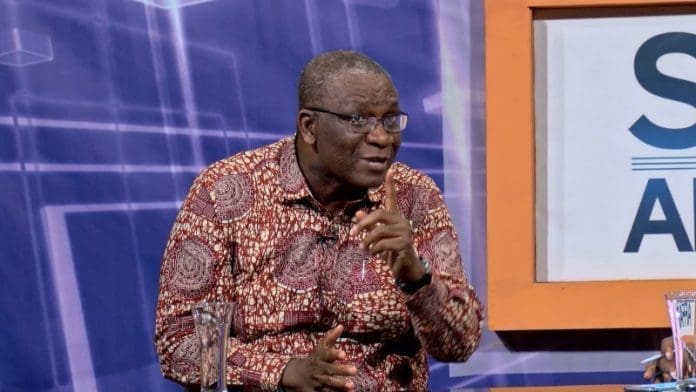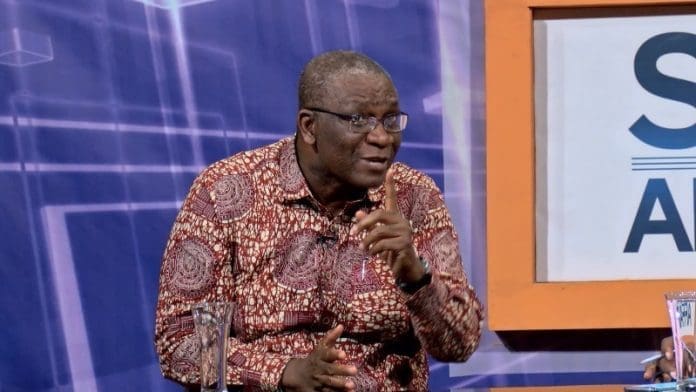
Former Energy Minister Boakye Kyeremateng Agyarko announced on September 30, 2025, that he’s running for National Chairman of the New Patriotic Party (NPP), abandoning his previous presidential ambitions to focus on the party’s top administrative role. His entry adds another heavyweight to what’s shaping up as a contentious battle for control of Ghana’s opposition party.
Agyarko framed his candidacy around restoring the party’s identity, unity, and social trust—urgent priorities for the NPP after losing both the presidency and parliamentary majority in December 2024. But he’s not the only one promising renewal. At least five candidates have now declared bids for the chairmanship, including Ashanti Regional Chairman Bernard Antwi Boasiako (known as Wontumi), former General Secretary John Boadu, and David Kankam Boadu, who served as spokesperson for the late Vice President Aliu Mahama.
The race reflects deeper tensions within the NPP about what went wrong and who’s best positioned to rebuild. Agyarko brings credentials that look impressive on paper: founding member of the party in 1992, National Campaign Manager for the 2012 presidential election, Policy Adviser in 2016, and over two decades at Bank of New York where he rose to Vice President. His stint as Energy Minister under President Nana Akufo-Addo adds cabinet experience to his resume.
Whether those qualifications translate into grassroots support remains unclear. Party elections often turn less on résumés than on regional power bases, delegate relationships, and factional loyalties built over years of internal politics. The NPP’s current chairman, Stephen Ntim, hasn’t publicly announced whether he’ll seek another term, adding uncertainty to the race.
What’s notable about Agyarko’s announcement is the timing and tone. He pitched his candidacy as responding to consultation with family, friends, and party members who urged him to take on the role. That language suggests he’s positioning himself as a unifying figure rather than a factional candidate though how delegates interpret that positioning is another matter.
The NPP’s internal dynamics have shifted significantly since its December electoral defeat. Losing power after eight years means the party now faces the challenge of maintaining cohesion without the glue of government patronage. National Chairmanship becomes more consequential in opposition, as the position carries greater responsibility for fundraising, organization, and keeping various party factions aligned.
Agyarko’s international banking background could prove advantageous for fundraising, particularly from diaspora communities and international connections. His experience heading global network management at Bank of New York suggests comfort navigating complex financial relationships skills that matter when building party infrastructure.
But the chairmanship race isn’t decided by credentials alone. Regional balance matters enormously in NPP internal politics. The party traditionally tries to balance its leadership between different parts of Ghana, and candidates’ regional bases often determine their viability. How Agyarko’s support breaks down geographically will likely prove as important as his professional background.
The competition appears intense. Wontumi brings strong Ashanti Region backing, where the NPP has its deepest support. John Boadu knows the party machinery intimately from years as General Secretary. David Kankam Boadu is positioning himself as a link to the party’s historical roots. Each candidate can make plausible claims about why they’re the right person to lead the rebuilding effort.
One complication for all candidates: the NPP is still processing what its defeat means. Some members argue the party needs fresh leadership disconnected from the previous administration’s problems. Others contend experienced hands who understand the party’s traditions should guide the renewal. Agyarko sits somewhat awkwardly between these camps he’s both a founding member and a recent cabinet minister.
His supporters, including the writer of the statement urging other candidates to step aside, argue his combination of experience, international exposure, and party dedication make him uniquely qualified. That kind of advocacy suggests organized backing, though it’s impossible to gauge from outside how deep that support runs among the delegates who’ll actually vote.
The NPP hasn’t announced when it will hold internal elections, though they typically occur within a year or two of losing national power. That timeline gives candidates months to build coalitions, secure endorsements, and navigate the party’s complex internal politics. Whoever wins will inherit significant challenges: rebuilding morale after defeat, maintaining unity across regional and factional lines, preparing for future elections, and defining what the NPP stands for as an opposition party.
For now, Agyarko has joined a crowded field of candidates all promising they can deliver renewal. Whether party delegates find his pitch compelling will become clearer as the campaign develops and other potential candidates clarify their intentions.
